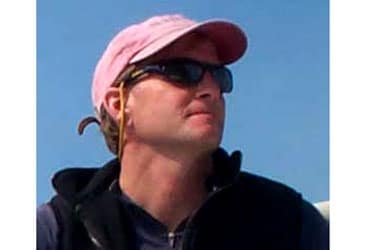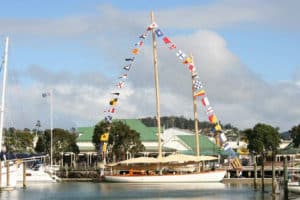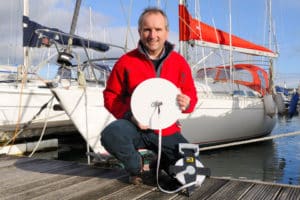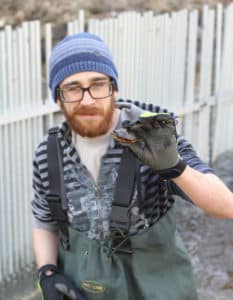
John Burnham 368
The ocean’s warming; the ocean’s cooling. Antarctica’s ice cap is melting; it’s actually growing. Climate change has been going on since the last ice age; due to man’s influence, climate change will end life on Earth as we know it. These are all statements you may have read in the general press recently, and they’re probably all true, albeit as views through various lenses. I’m no expert. But I do know I’d like to do what I can to make our oceans clean and healthy for my children and their children.
At my home, the grass isn’t getting doused in chemicals that might end up in Rhode Island’s Narragansett Bay, and I’ve decided to pay the electric company a small premium so some of my electricity comes from sources other than the power plant that overheats nearby Mount Hope Bay. Afloat, I’m taking trash ashore, recycling what I can, learning to avoid fuel drips when filling up, using bio-friendly cleaners, and pumping out properly. That’s a beginning.
Finding better ways to do things and developing new habits stretches me in a good way. Yet in the context of the larger discussion of climate change, I sometimes feel exhausted thinking about all I ought to be doing to help save the planet. To get past that, I just try to remember that doing nothing is a choice and doing something is another choice, and that the latter is much more useful and energizing, especially if I work with others.
Good ideas for moving into action mode were provided last year by the 13 community groups, yacht clubs, and other nonprofits that received more than $25,000 from the BoatU.S. Foundation’s Clean Water Grants program. “With volunteer labor and a little money, they get a lot done,” says Ruth Wood, president of the foundation, which had more than 100 applications for grants up to $4,000.
Long Island’s Oyster Bay Power Squadron earned the foundation’s Excellence Award for the year’s top project, creating signs and brochures to teach clean fueling techniques and indicate where area pumpout stations are located. Other grants helped a group in Idaho promote recycling of fishing line at marinas and another group in Alaska buy long-handled mesh nets and trash cans to use in the disposal of harbor debris.
The next BoatU.S. Foundation grant deadline is in early 2009, but before then you could check out the Waterfront Challenge, a new contest sponsored by Interlux. Any group of three people or more with a project executed between April and October could win a share of $60,000 in awards spread across seven regions-from the Pacific Northwest to the Caribbean. One of our contributing editors, Douglas Bernon, directs the program and says this is a great chance to educate young sailors, clean beaches, and rebuild water-access facilities. Nonprofits, clubs, or even a small family with a good idea can enter. I can’t enter, because Douglas invited me to be a Waterfront Challenge judge, along with Ruth Wood and several others, but I hope you will.
Is global warming something for which we’re all responsible, and do our carbon footprints matter? I think the answer to both is yes, but I acknowledge that you may have a different opinion. We won’t settle the argument at Cruising World, but we’ll report on what we learn, provide space for a variety of observations by cruising sailors, and, as best we can, encourage good stewardship of our oceans and adjoining lands. If you’d like to know more about either of the programs I’ve mentioned, a copy of this column can be found on our website (www.cruisingworld.com/0608editorslog) with BoatU.S. and Waterfront Challenge links, or you can go directly to their sites (www.wfchallenge.com and www/boatus.com/foundation)







